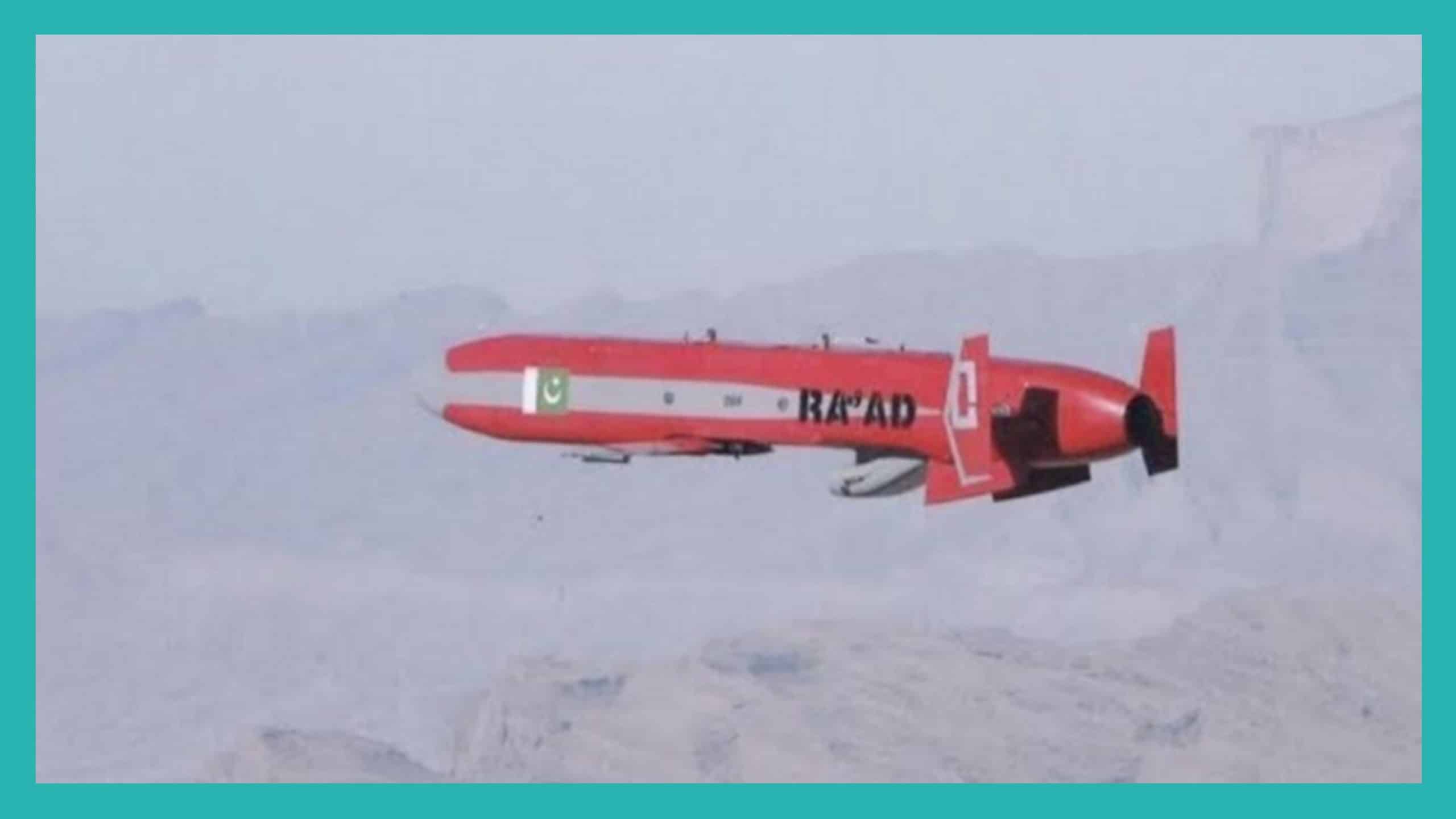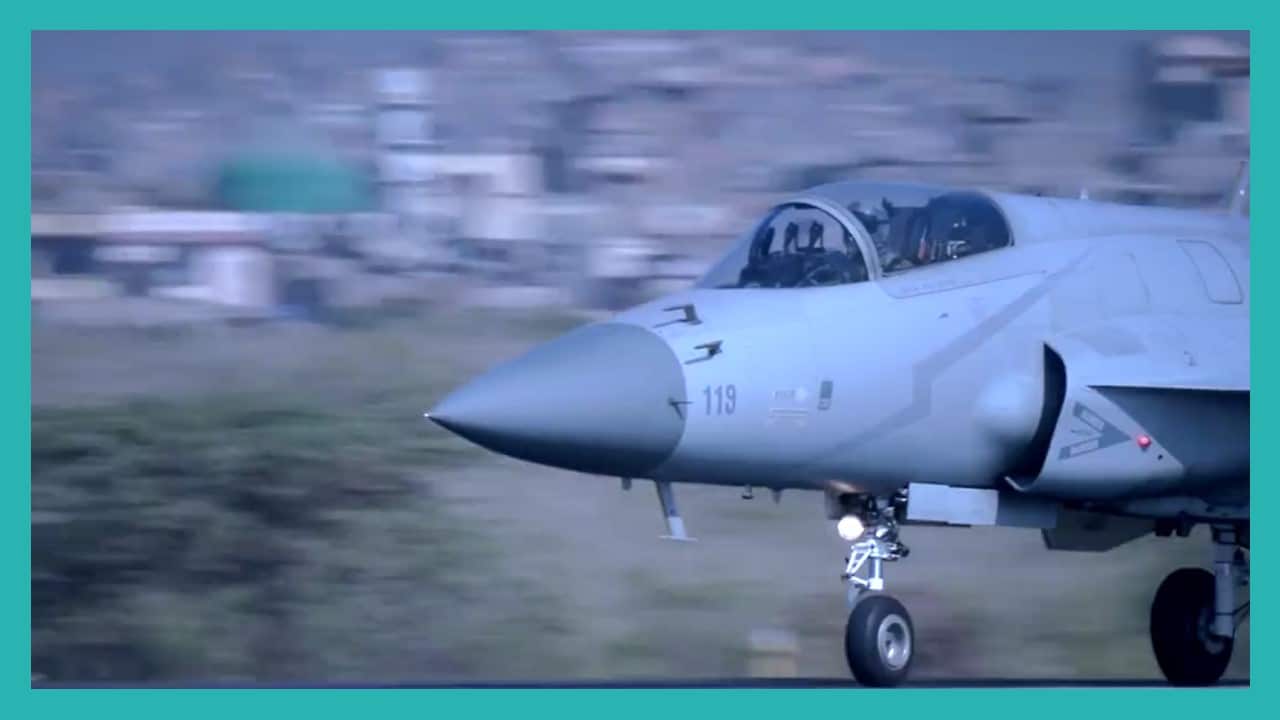1874Views 0Comments

The Real Threat to Pakistan’s National Security – Part 3
Author Profile: Syed Aseem Ul Islam is PhD candidate at the University of Michigan, Ann Arbor, USA, specializing in adaptive and model-predictive flight control systems. He received his bachelor’s degree in aerospace engineering from the Institute of Space Technology, Islamabad, and his master’s degree in flight dynamics and control from the University of Michigan.
In parts one and two we discussed the various policy and administrative measures that could be taken to rescue Pakistan’s R&D capability from a dangerous slump. Where part-two discussed management styles, secrecy, and compartmentalization, part-three will discuss the right approach to research.
If implemented, the recommendations presented in this article can allow military and strategic state-owned enterprises (MS-SOE’s) to utilize existing resources to greatly improve Pakistan’s R&D capability and achieve new technological heights.
In effect, these recommendations are “R&D force multipliers” in that they are quick, easy, and cheap to implement, and can have dramatic effects on technological prowess of MS-SOE’s in all fields.
A Culture of Research
The importance of technical prowess of individuals and the value of merit is nowhere as crucial as it is in research organizations, where the success of the organization relies on the ability of good researchers to reach the top and spread their ideas. Thus, it is vital that policies are implemented that allow such people to be attracted to and flourish at MS-SOE’s.
Research flourishes when talented experts can frame their own personal research goals that serve an overarching organizational goal. That is, the entire organization should not be working exclusively towards the detailed implementation of the plans of a single individual, however gifted they may be. The potential of each researcher in the organization should be fully utilized by letting them do exploratory and lateral research, instead of assigning them developmental grunt work.
As an example, consider the R&D of a new cruise missile system. The current organizational structure will have a few people design the cruise missile and spec out most (if not all) of its components, and the “R&D” will now involve an army of overqualified researchers toiling over implementation of the design.
As opposed to this style, a better approach is to specify rough specifications for systems, and have multiple teams develop several solutions that rely on different ideas to meet the specifications. This approach ensures that the research capacity of the researchers is fully employed, and a much more refined system is produced at the end. Furthermore, when researchers are valued for their ability to propose new ideas, then their morale is boosted and their productivity increases.
Finally, no organization can be successful without good leadership, and consequently, a conscious effort to cultivate leadership should be made. The unfortunate and widespread practice of leg pulling of talented individual needs to be countered. When smart, motivated, and young researchers join an organization they work under superiors that feel threatened by the ability of these young researchers to rock the boat.
Many instances of managers intentionally sabotaging assistant managers have been narrated to the author in confidence. Poor annual performance reviews are given to “uncooperative juniors” and time served is sometimes enough justification for promotion for “cooperative juniors.” Team leaders must promote the interests of those in their team. This idea needs to be taught to all levels of officers in these research organizations.
Recommendations:
- Officers should not be promoted based off performance reviews and time-served alone, but a more holistic view should be taken where research initiative and research output should be valued. This does NOT mean number of publications or proposals as such incentives have had a devastating effect on the higher education ecosystem of Pakistan.On the contrary, more concrete measures of research output – such as number of successfully implemented projects, out-of-the-box initiatives taken in assigned projects, and refinements of existing processes – should be considered as criteria for promotion.This will ensure that researchers who do more than the bare minimum are rewarded, and the entire organization is better for it.
- Each officer should be asked to propose areas of research annually to their immediate superior. This should be done at all levels with ideas going up the chain of command. When this exercise is conducted throughout the organization many excellent ideas will be generated.If a proposed area of research is well-suited to some over-arching goal of the organization, this area should be funded and the officer that came up with the idea rewarded and asked to contribute or possibly lead the research. This creates an essential buy-in from the officers and utilizes the power of all the expertise at the hands of an organization. Furthermore, this prevents superiors from undercutting their juniors as they are expected to push the ideas of their team up.
- Proposed areas of research should be submitted to a combined repository so that the original authors are always rewarded, and superiors are unable to take all credit for the work of their juniors.
- Superiors should be rewarded for research done by their juniors and the inclusion of successful juniors should be made a requirement as a matter of policy.
Funding University Research
Funding university research is not given its due importance in the research ecosystem of Pakistan as detailed in a previous article. It is usually seen as a token action done to advertise “academia-industry linkages”, with little or no output to show for it.
Unfortunately, MS-SOE’s have unrealistic expectations and therefore do not believe that universities can help their cause. In essence, MS-SOE’s dramatically underestimate the funding needed to conduct research in universities, and invest paltry and token amounts, while expecting grand returns.
There are several notions held by MS-SOE’s that need to be corrected.
Firstly, conducting research requires dedicated graduate students that can be counted on to conduct research for years, working together with professors. That is, professors on their own cannot conduct meaningful research.
Secondly, research requires projects to last 3-5 years as research is a slow-moving endeavor. That is, research can rarely produce output rapidly, as it is expected by MS-SOE’s that fund research in Pakistani universities.
Thirdly, university professors in Pakistan are primarily hired to teach undergraduate courses, where they are expected to teach 9-12 credit hours each semester. The norm in the United States is for professors to teach 3 credit hours each semester and do research. Not surprisingly, Pakistani professors have little or no time to dedicate towards research.
Finally, the amount of money allocated to most projects is dismal. Moreover, expectations of what this money is supposed to be used for, and what the funding agencies think it is used for, are very different things.
Funding is primarily used to pay for the graduate student’s university fees and a stipend. This incentivizes graduate students to conduct research, and it costs much less to pay a graduate student than to pay an officer in a research organization.
Next, funding is used to pay the professor for their time spent on the research. Since the professors spend time researching instead of teaching undergraduate students, they are paid by the funding agency for their effort.
Finally, funding is used to buy hardware that is usually owned by the university, which is an investment into the university’s future capacity. This incentivizes universities to seek research projects as it leads to direct capacity building of universities. This is in stark contrast to how MS-SOE’s currently fund research in universities, where paltry amounts are given for single year projects, which do not even cover the cost of the professors’ time.
The advantages of funding university research are many.
Graduate students can conduct research in an unclassified environment and thus have access to the latest software and international research. Furthermore, graduate students cost much less per hour of work than any officer in a research organization. Additionally, the university environment encourages and allows much more lateral and “out-of-the-box” thinking, leading to more innovative research. Also, graduate students trained in such research are well-primed to join research organizations where they can continue their research and bring their research ethic to the organization. Finally, universities that have advanced research programs will bring prestige to Pakistan and allow collaborations between Pakistani universities and international universities and companies.
Recommendations:
- As a policy MS-SOE’s should fund research projects that fulfil the following:
-
- 3-7 years in length
- Funding for 2-5 graduate students’ university fees
- Funding for 2-5 graduate students’ monthly stipend at PKR 60,000 each
- Funding for 1 professor’s time – a monthly stipend of PKR 60,000 each
- Allow professor to teach reduced credit hours (preferably 3-6 credit hours) without reduction in university pay-any difference in professor’s salary should be from funding.
- The table below lists some possible project funding scenarios assuming PKR 300,000 per semester university fees for each graduate student:

- Annually invite proposals from university professors in areas of research as determined by a research organization, and fund at least two proposals each year.
- The fellowship program used by MS-SOE’s for hiring undergraduate students should be used to fund research projects in point-one. That is, MS-SOE should fund PhDs of graduate students and then hire these PhDs. This is an extremely efficient win-win situation for all involved parties.
Cultivating the Right Human Resource
To accelerate the pace of technological advancement in Pakistani research organizations, foreign-trained professionals are required. Fortunately, our planners realize this and there exist numerous programs where officers and university faculty are sent abroad for funded PhDs. Unfortunately, this program has had limited success due to several reasons.
Firstly, obtaining a PhD from a well-reputed international university is often not enough to gain a significant amount of experience. For that, industrial experience is required. As these PhD students are expected to return to Pakistan immediately after completing their degrees, they merely possess degrees and abstract knowledge, but little or no practical experience. Furthermore, these individuals’ motivation has not changed, and they may be pursuing foreign degrees for extended vacations and promotions when they return.
Secondly, individuals that opt to go abroad for state-sponsored higher education have highly likely not lived outside Pakistan before. This presents two risks: they will experience the world outside Pakistan for the first time and decide they do not want to live in Pakistan anymore, or their intention was to go abroad in the first place.
Thirdly, the state of Pakistan spends scarce tax-payer money on the education and living expenses of these students that cannot potentially start returning the investment for up to 5-7 years. Finally, due to the aforementioned issues, most people that serve will attest to the fact that officers that are any good apply to universities abroad during their final years and leave the country to never come back.
The solution to all these problems lies in more carrot and less stick.
Firstly, to limit brain-drain of truly talented experts we must reform our research organizations as listed in this article. Secondly, we must pursue a class of Pakistanis that is much better suited for what we want to achieve: expat Pakistani experts. We must aim to attract these people to Pakistan to inject valuable knowledge and experience into our research organizations at a rapid pace.
Expats are already living abroad and are not going to use tax-payer money as a “ticket abroad.” Any expat who chooses to come to work in Pakistan is doing it for Pakistan, and this motivation cannot be guaranteed anywhere else. They also have advanced degrees that the taxpayer has not had to pay for.
Furthermore, these individuals are often working in industry and academia at senior positions and possess a wealth of experience that no fresh PhD can ever possess. Most importantly, these individuals can start working for Pakistan immediately without the dead-time of 5-7 years seen with sending people abroad for PhD’s. Finally, these expats are well suited to train and groom local talent in a way no one else can.
Recommendations:
- Limit the number of officers and university faculty sent abroad for PhD. Whatever this number currently is, should be halved at least.
- Invite expat Pakistanis to work in Pakistani MS-SOE’s through online advertisements.
- MS-SOE should identify areas of research where experts are needed and respective experts living internationally. These experts should be approached in person through the foreign office.
- Expat Pakistani experts should be offered the following:
- Attractive pays – PKR 300,000 fresh PhD, PKR 400,00 PhD with 3 years experience, PKR 500,000 PhD with more than 6 years of experience. This is still peanuts compared to what these individuals earn internationally, but they will be doing this for the love of Pakistan and nothing else.
- Stability: Their contracts should be for at least 5 years. MS-SOE’s cannot expect people to move to Pakistan when they can be let go after a year.
- They should be given complete freedom to hire and maintain their own teams. All research is done in teams and an expert with a lackluster team will deliver nothing.
- They should be allowed (and encouraged) to publish their research internationally. This will have to happen with a realignment in secrecy concepts as discussed earlier. The connections these experts have with international experts in the field should not be wasted by smothering all their interaction with the outside world. Of course, this will be subject to secrecy limitations but a blanket ban on publications should not be imposed.
- They should NOT work under people less qualified than them. For example, an expert with a PhD from MIT with 6 years of experience should not be made to report to a brigadier with a bachelor’s degree and experience of maintaining trucks.
- Expat Pakistani experts should also be invited to work in Pakistani universities and advise PhD students in Pakistan. This is a much cheaper alternative than sending officers abroad for PhD that may or may not even return.
Conclusions
Over the three-part series of articles we have discussed recommendations for revamping Pakistan’s military and strategic R&D sector in the areas of long-term policy, medium-term administration, and short-term research management.
It is imperative that recommendations from all parts are seriously considered and implemented for the sake of Pakistan’s national security as failure to keep pace in this age of rapid geostrategic realignment can be catastrophic.
Given the rapid increase in the pace of technological advancement, now would be the absolute worst time to be left behind technologically, especially due to easily fixable faults in our systems.


